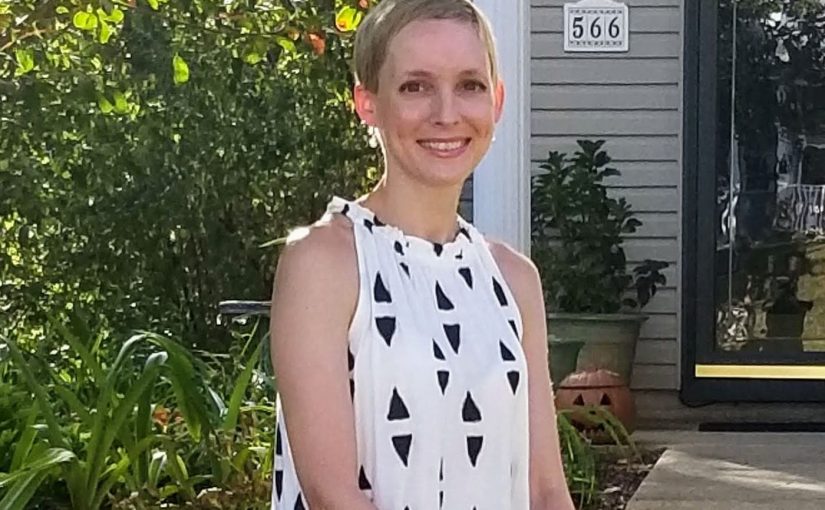By Brooke Gant
One year ago, I was a healthy 32-year-old woman. Then, with a flurry of medical tests, I became an ovarian cancer patient.
I quickly learned that when you get hit by a difficult disease, you become vulnerable and insecure, unsure of what to do next.
Friends, family, and strangers, on the other hand, may seem quite certain about what you should be doing.
I found comfort from some people’s sage advice, while other people were so obliviously inconsiderate that I wasn’t sure whether to laugh or pull my hair out — if only I weren’t bald.
It is hard to know what to say to someone in a life-or-death struggle. So here is a simple guide from a cancer survivor who has heard it all:
- Don’t critique treatment decisions. Whether the patient chooses modern medicine, a holistic approach, or a combination of the two, he or she did not arrive at the decision lightly. An acquaintance told me to stop chemo because it — and not the rare, aggressive cancer I was battling – was going to kill me. Instead, I should buy a juicer on Amazon, I was told, because juice is the key to good health. Even if you have a far less ridiculous alternative to propose, making treatment choices is difficult on a patient and it is best to be supportive.
- Don’t point out how treatments or the disease are changing a person’s appearance. While I was in chemo, I saw many women who managed to be both bald and beautiful, but I joked that I looked like an alien – and I was only half-kidding. I chose not to bother with makeup because I didn’t think it helped. One day when I was out, a woman I had never seen before marched up to me and said, “You should go to some classes on how to apply makeup while you’re going through chemo.” Maybe her intentions were good. But I knew I didn’t look my best. So does everyone who is having cancer treatment. We don’t need to be reminded.
- Don’t grasp for a silver lining. This is the issue I struggled with most, and it was also something I heard a lot, even from total strangers. I’ve heard it all, from “at least you’re young” to “I bet this has been a good way to strengthen your marriage.” The only silver lining to these types of comments was that they helped me to perfect the dramatic eye-roll. It is not consoling to be told that your disease is improving your life. If the patient is finding any positives, wait for them to tell you about it.
- Do ask if the patient would like to hear how you relieve stress or find comfort in times of need. These can be precious jewels – to those of us who want them. When I went through chemo, I was terrified. It was excruciating to anticipate the side effects. My grandmother would always say, “Take one day at a time,” which helped me to stay focused on the now and not any upcoming procedure. Also, many people shared their favorite Bible verses that brought them a sense of calm, while others shared activities, like yoga, that were stress relievers. I found all that very useful – when it came from people who didn’t try to equate their stress with mine, but just offered specific ideas.
- Do give compliments. It is very defeating when your appearance changes, you lose strength, and feel lousy every day. Overnight I went from looking fit to sickly. I felt ugly without my hair and I no longer felt like myself. No matter how bad I looked, my husband, Nick, always told me that I was beautiful. Without fail, whenever I was struggling to not just fall in a heap, my parents told me how proud they were of me. These are things I will never forget. Compliments are little flashes of bright light in a dark time.
- Do look for helpful actions when words fail. Send a card, bring dinner, flowers, a good movie or book. My fifth round of chemo was particularly brutal, but when I got home I found that my brother and sister-in-law had sent a beautiful bouquet of yellow flowers. Sometimes these little gifts can brighten a day more than words. The worst thing you can do when a friend is suffering is nothing at all. Even when I didn’t feel up to seeing anyone, I was comforted knowing they were thinking of me.
Brooke Gant is an ovarian cancer survivor and advocate who lives in Alabama. This guest column appears through our partnership with Inspire, an Arlington, Va., company with condition-specific online support communities for more than a million patients and caregivers.
This article was published by Inquirer.


